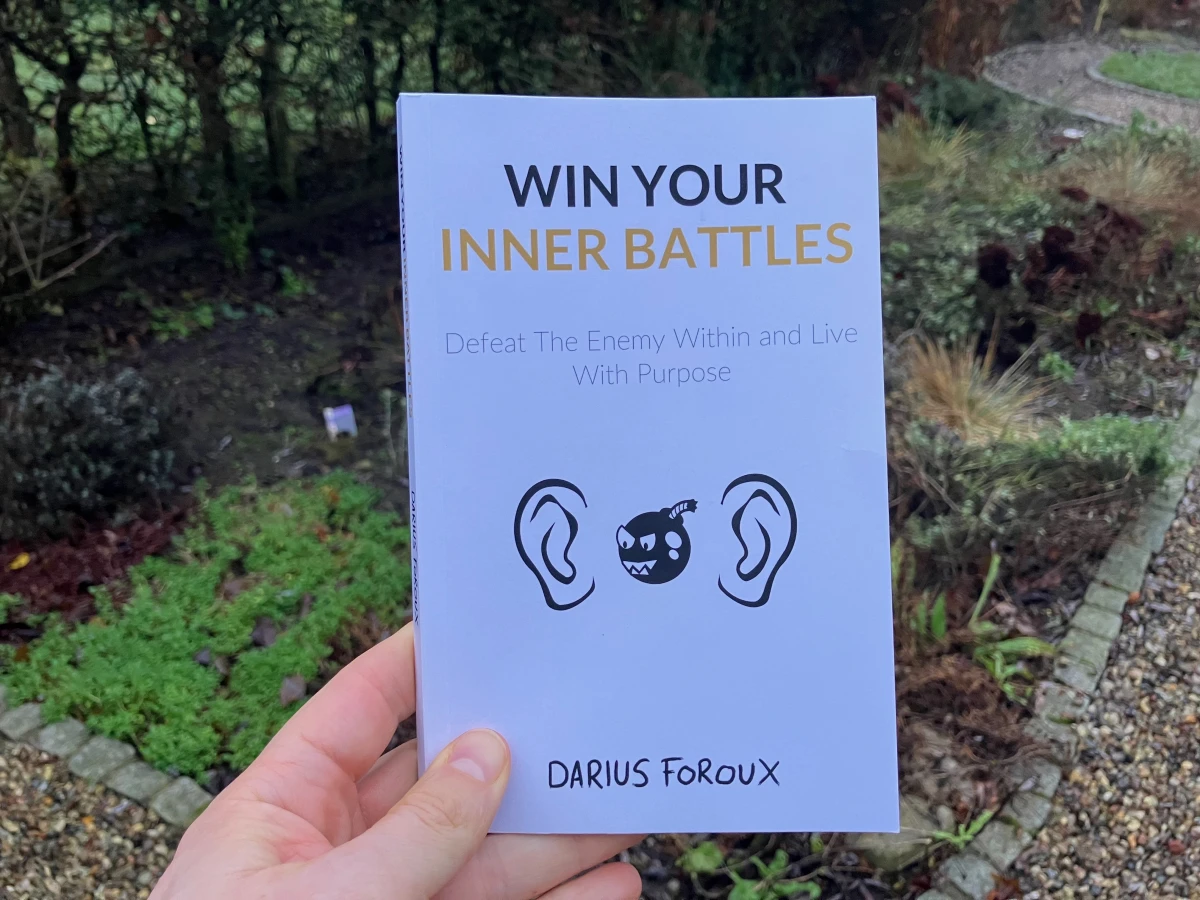Review "Win your inner battles"
In this post I would like to share my enthusiasm for the book "Win your inner battles" and why I think it is worth reading for everyone. If you are also looking for a way to achieve your goals and live a good life, then you have come to the right place!

About the authors
Darius Foroux was born in Tehran in 1987 and moved to the Netherlands with his family as a child. He grew up in humble circumstances and learned to appreciate the value of wealth at an early age. He studied economics and marketing. Through experiences and studies of successful investors, he came to stoicism and discovered the importance of emotional control and patience for long-term (financial) success. He shares his knowledge on his blog and is known for his inspiring talks and analysis on how people can achieve their goals.
What is the book about?
The author shares the insights that he has learned in life: before conquering the external world, one must master the internal world of his mind. Self-doubt creeps in at the strangest moments. Sometimes, you don't expect it at all.
Darius shows us how to fight fear, find purpose, develop self-confidence, and set achievable goals. He also tips on what to do if something goes wrong and how to live a good life without stress and anxiety.
What's great about it?
Appropriately, I picked up the book at the end of 2024. It inspired me to define an annual principle I've never done before. This one is called “Pursuit of a happy life.” There are many such impulses and food for thought in the book.
Darius works with the concept of rhetorical questions. He uses this to guide the reader through the book. The content is compact and concise, so each chapter and page offers insights. I want to list the points that stuck with me the most here:
- Fear is a reaction I can control and decide against if I know the source. To do this, I must see the enemy: myself. On page 19, Darius lists twenty questions I have transferred to a bullet journal collection and will answer over time. This is an exciting experiment.
- Complaining and whining are the opposite of gratitude. They poison my mind, and there is no progress.
- I can build confidence through competence. I achieve competence through continuous learning: "Improve" ⇾ "Practice" ⇾ "See results" ⇾ "Grow" ⇾ "Repeat."
- Motivation is excellent, but consistency, endurance, and persistence are more important.
- To view “being happy” as a skill I can learn by influencing my thoughts. This is closely linked to your attitude. Am I an optimist or a pessimist? And which people do I surround myself with? I've become cautious with the realists who, in the end, are just pessimists and don't want to call themselves that. They focus on the problems instead of solutions and hinder my progress.
What's annoying about it?
In the "Analysis and Improve" section, Darius claims that someone else has already faced all my challenges in history. My situation is not as unique as I imagine. I cannot accept this point of view. It may be true if I look at my challenge and life situation from “far away” or very abstractly. Darius view is just too simplified for me.
His conclusion from the section is a good one. I often see problems as more significant than they are. A good approach is to stay calm, analyze specifically, identify the aspects I can influence, and mentally visualize the supposed “worst case” to take the fear away.
The best quote
“Success means we experience life instead of enduring it” – for me, this as a mindset is the foundation for a good life. Everyone has to define success for themselves in life. I didn't asked myself "What is success for me?” for a very long time. Since I wrote the blog and was looking for the “WHY,” this question has been present, and this formulation is the closest to an answer so far.
Why everyone should read the book
The book addresses many central questions about living a good life. I am convinced that everyone wants to live a life like this, and to achieve this, we must dedicate ourselves to the answers. At this point, at the latest, the journey to oneself begins. I am convinced that anyone who doesn't take this journey will regret it. Each of us has so much potential—this journey will uncover and unfold it.
Finally, a note on the last pages of the book. There is a reading list with fascinating literature recommendations to delve deeper into various topics. I was able to add seven books to my reading pile.